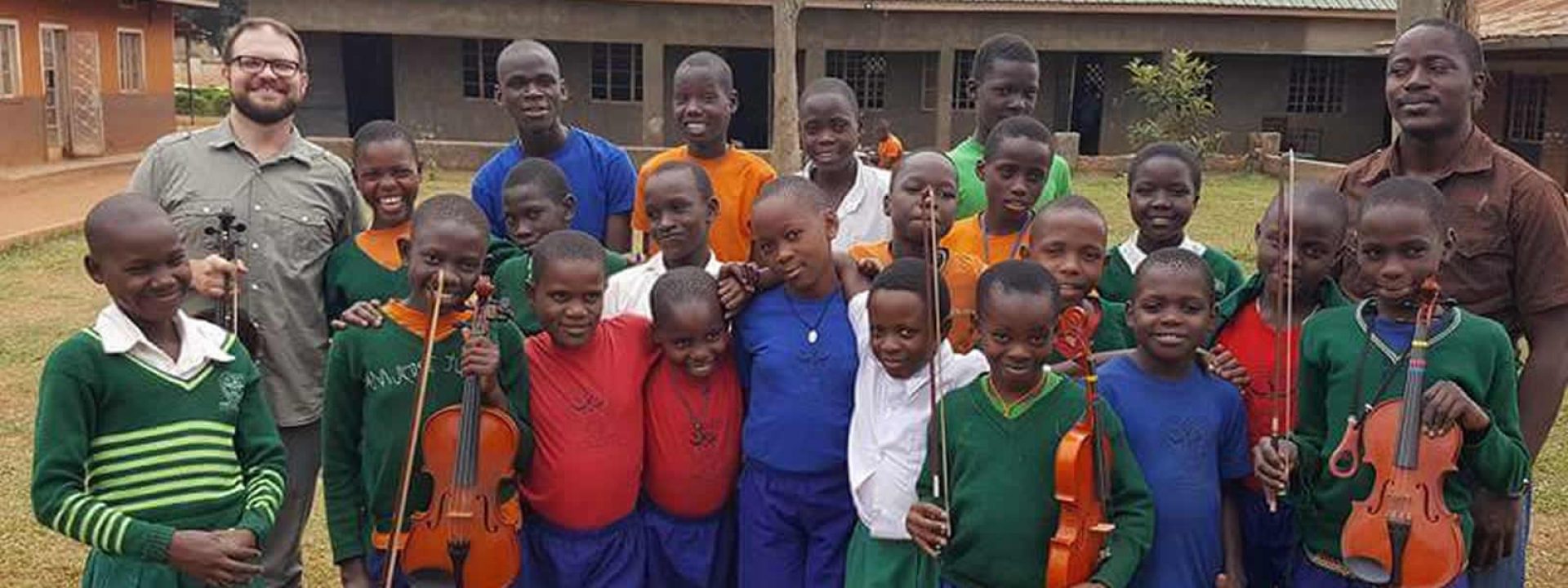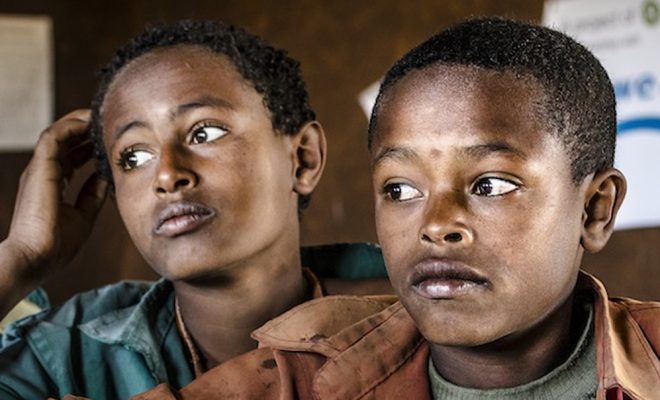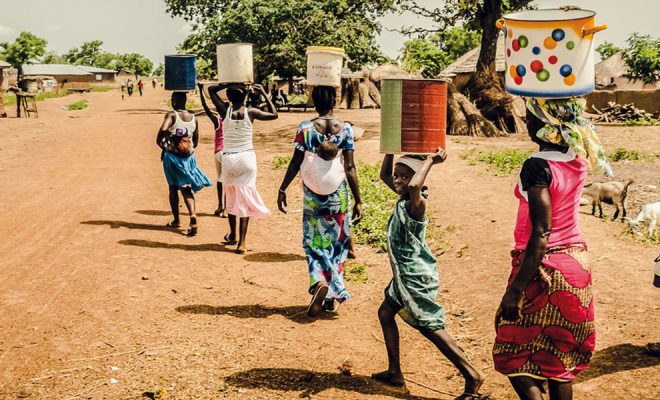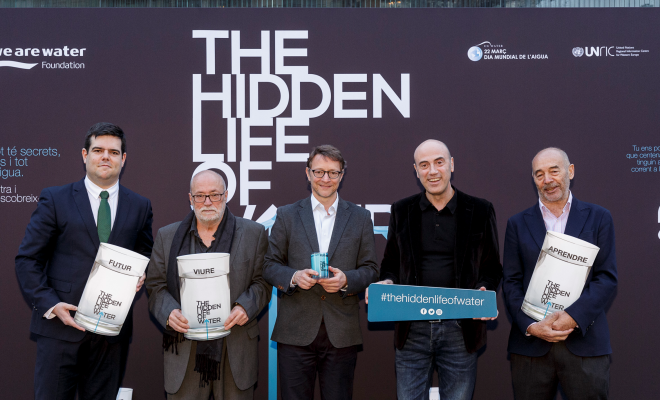The Saint Mary Kevin orphanage is located in the municipality of Lweza, in the Wakiso district, on the outskirts of the capital Kampala. It is an area where many of the water problems that Uganda is experiencing are converging and which threaten the country’s remarkable economic growth over the past three decades.
One of the burdens dragging on many African countries is the high internal migratory flow, an active factor in the constant socio-economic imbalance. According to FAO, Uganda reached an internal migration rate of 80% in 2016, the highest rate, along with Nigeria, of all sub-Saharan Africa. A significant part of this migration is due to the high rate of population growth, almost three times the world average.
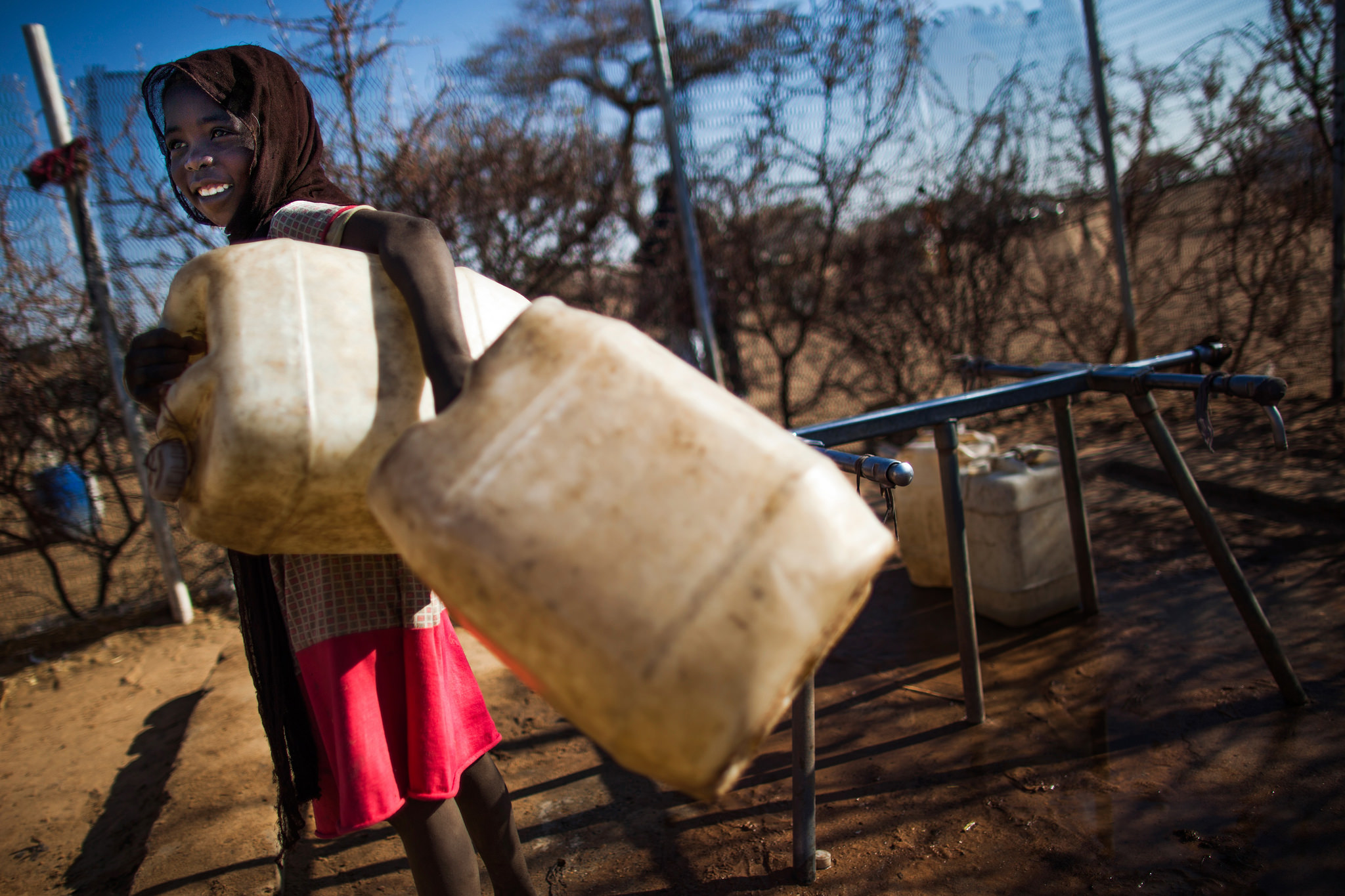
©UN
Uganda’s rural areas have already started to feel the effects of climate change with irregularities in the crops and general deterioration in the access to water and sanitation. The FAO estimates that 61% of the Ugandans do not have access to safe drinking water and 75% do not have access to improved sanitation facilities. According to the latest Human Development Index of 2016, Uganda continues to have a low life expectancy (59.2 years) and an infant mortality rate of 128 out of 1000 births.
Most Ugandan migration has taken place from rural areas to cities, where thousands of people have ended up in hasty settlements around urban centres without access to water and sanitation. This is the case of the Wakiso district, adjacent to the capital Kampala, the second most densely populated district in Uganda (354 inhabitants per km2) with 957,280 inhabitants.
31% of the population of Wakiso live below the poverty line, mostly from subsistence farming, small-scale trade or fishing in Lake Victoria. Over 60% of the population are young people under 17, of whom 17% are orphans, and just over 50% of them have completed primary education.
An orphanage, a model of water management
The Saint Mary Kevin orphanage is located in one of the areas with greater water stress in the municipality of Lweza, where 68% of its population do not have access to safe drinking water and its supply mainly depends on erratic rainfall. In the orphanage itself, access to water depends on a single well from which it is not always possible to draw water, so that students and teachers often have to travel to fetch it, joining the routine of hundreds of women and girls in the neighbourhood who find themselves in a similar situation of need.
There, the We Are Water Foundation is working with World Vision on a project to make the school self-sufficient in clean water. The idea is to build a sustainable, low-cost, solar-powered pumping system that will make it possible to make use of the well water and supply the school’s various services. The water will be stored in three tanks of 10 m3 each; from there, by gravity or using the same pumping system, the water will be delivered to four fountains that will serve the orphanage, school, small clinic, workshop and farm of Saint Mary Kevin.
The system will be completed with the collection of rainwater, for which roofs and gutters that are not currently in good condition will be repaired to ensure the quality of the water collected, which will be abundant during the rainy season. In addition, if the quality or quantity of water is not sufficient, arrangements will be made to connect the system to the public water supply, negotiating a special fee for the orphanage that could be paid by giving access to water to nearby families.
The system will be handed over to the orphanage and the school along with the necessary details for its proper management and maintenance, such as training for Saint Mary Kevin’s staff to ensure its sustainability, as well as to manage the payment of maintenance fees if access to water is provided to neighbouring families.
The project thus becomes a management model to be followed in other schools in Ugandan metropolitan areas. In addition to the direct beneficiaries, who are the school’s 300 children (200 of whom are orphans), access to water at Saint Mary Kevin will be extended to the more than 50 people who work at the centre and their families. But there are also some 1100 people who live near the orphanage and who will be able to use it for drinking water all year round.
The project’s objectives go further and have a direct impact on the health, especially of children, by reducing diseases caused by the use of unsafe water. The educational benefits will also be significant, as it will greatly reduce the time it takes people, usually women and girls, to fetch water, giving them the opportunity to study or do other tasks, as well as reducing the dangers they face from having to fetch water during the dry season.
Run 6 km for the access to water!
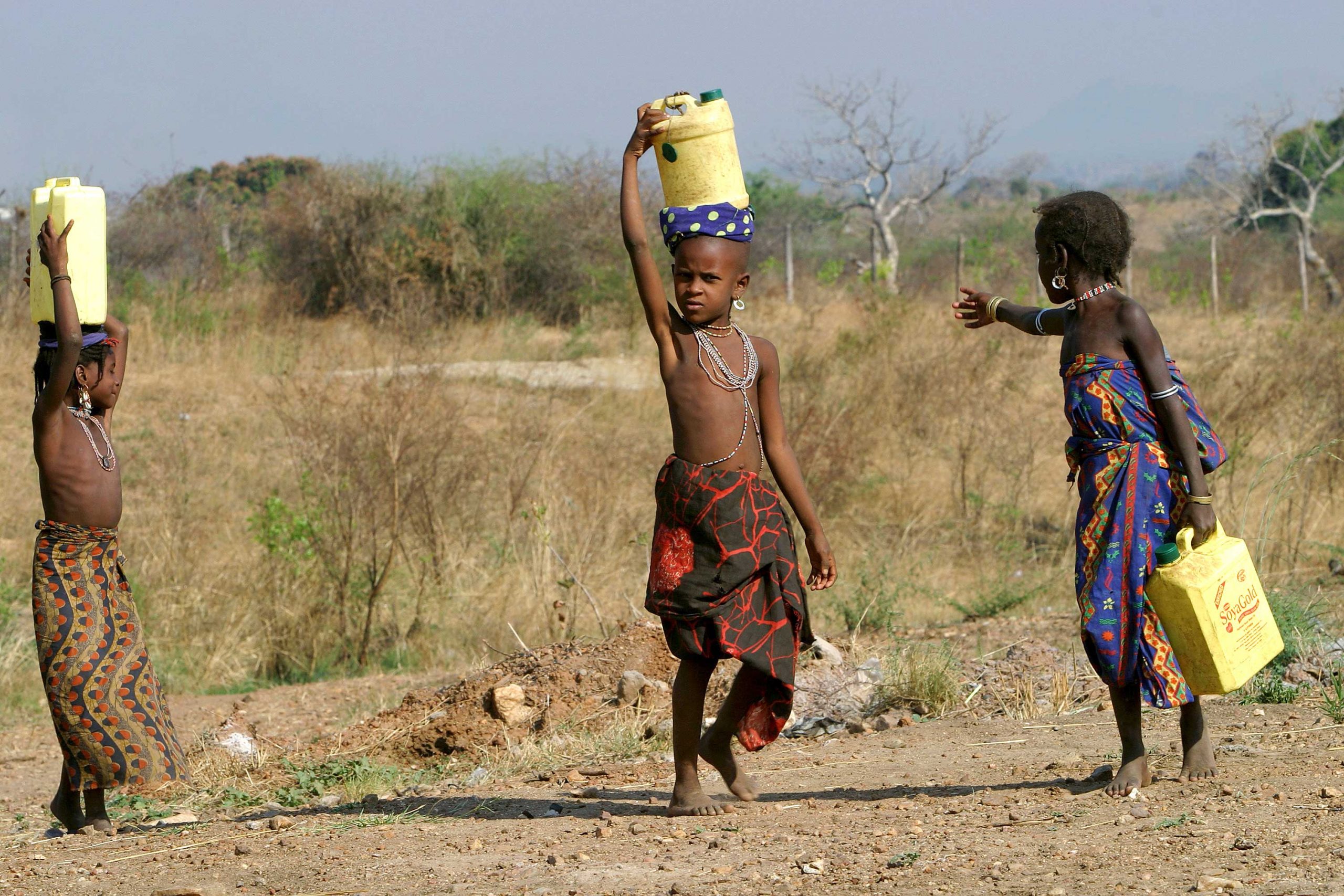
©UN
In this sense, the project is part of the #NoWalking4Water campaign promoted by the Foundation, which will take on special importance on May 19 in the Global 6K For Water race, an initiative of World Vision held in 19 countries. Participation is open to everyone at www.6kforwater.es.
Sign up! And cover the average 6 kilometres that the women and children around the world have to walk to a safe water source. Every step you take in this race will be one step less for a child to take to fetch water and more opportunities for a dignified life, school and a full life.


